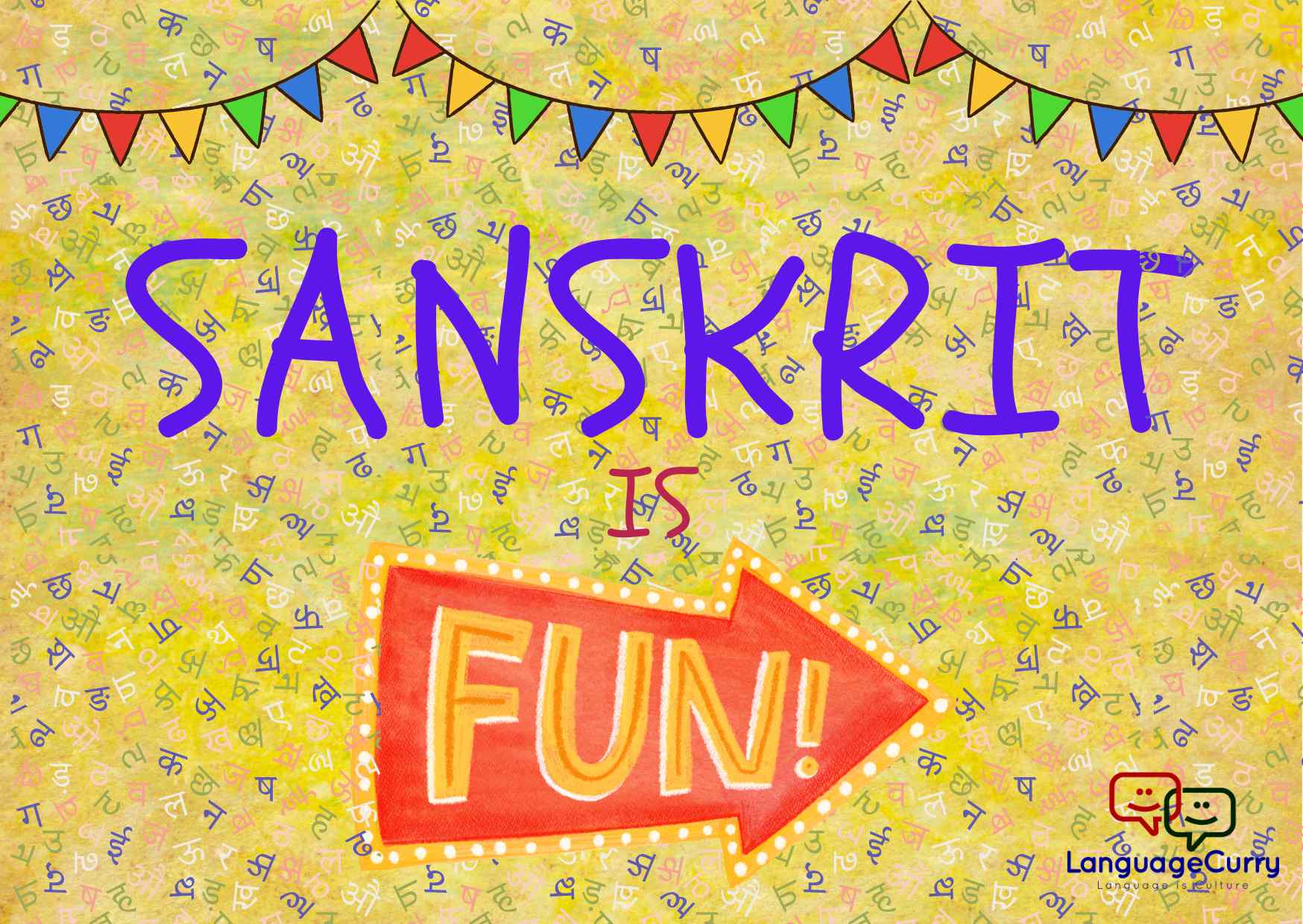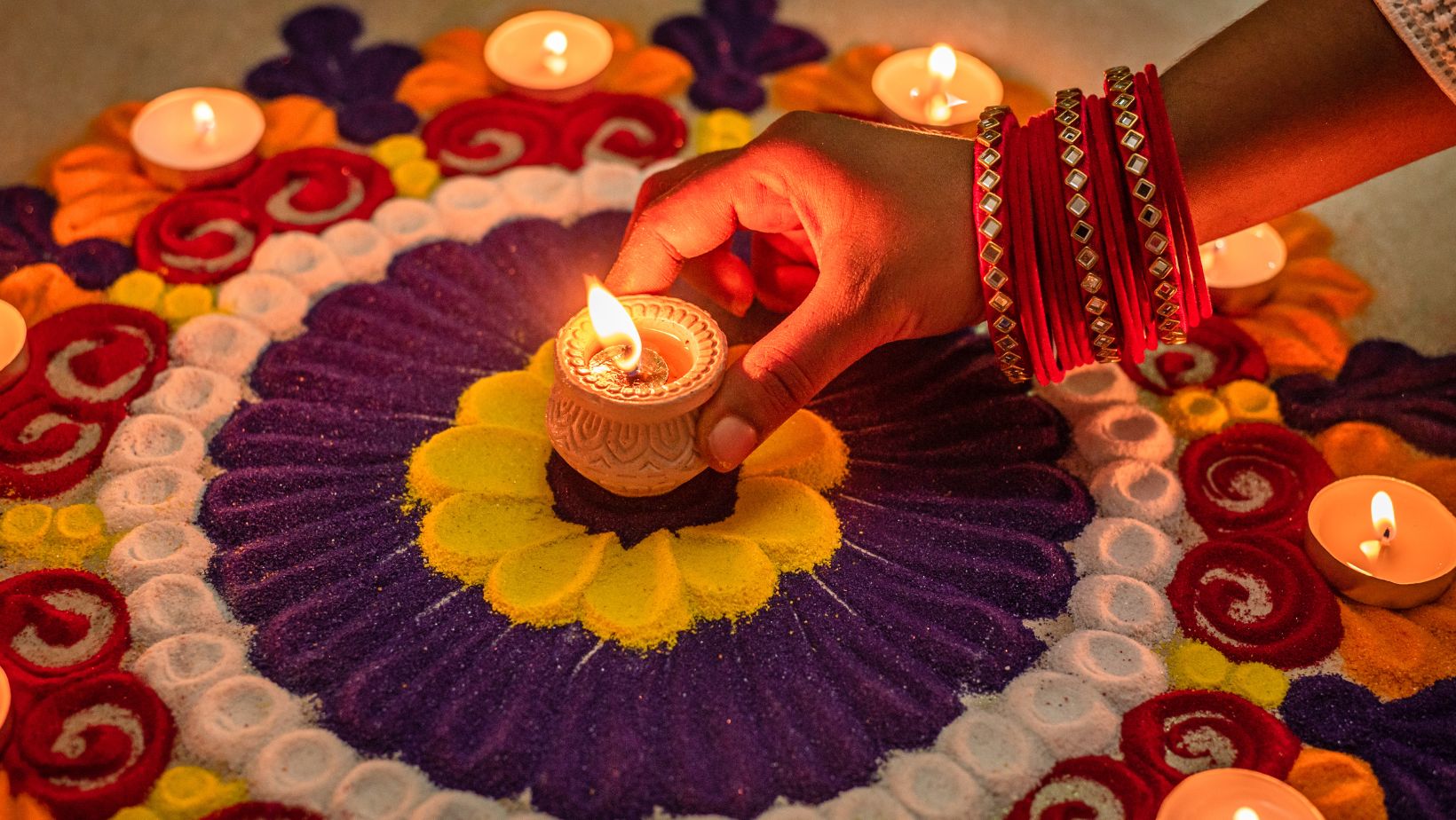Sanskrit is FUN Part 1!!
These Sanskrit rhymes are so witty that they can turn anyone into a Sanskrit enthusiast!
Sanskrit is Fun
I find Sanskrit to be a beautiful and wonderful language. One of the unique aspects of this language is that it has a very large vocabulary, which it facilitates all kinds of expressions — from simple to most complicated. Known as ‘Devabhasha’ or ‘a Divine language’, it is admired greatly by scholars from all over the world. Its very name means ‘refined’ or ‘sculpted to perfection’. In Sanskrit, we observe excellence in many aspects — the quality of its grammar, the wealth of its wisdom and values, the number of interesting and wonderful facts that border on the unbelievable, and the enchanting richness and beauty of its words which read and sound like poems. It has been revered for centuries as a sacred medium for expressing spiritual truths and experiences as well as a source of upliftment and enlightenment and many interesting and amazing creations.
.jpg)
The purpose of this write up is to present a few funny verses compiled from the the Sanskrit tradition in order to reveal some wonders of the language. Everyone can find something of interest in this presentation, whether one is a scholar of Sanskrit deeply immersed in certain subject matter or one has had no previous exposure to it.
Take a look and have fun!
Why TEA is called चाय cāya in Sanskrit
चीयते चित्तविस्फूर्तिः चीयते कायिकं बलम्।
चीयते पटुता वाचि तस्मात् चाय इति प्रथा॥
cīyate cittavisphūrtiḥ cīyate kāyikaṃ balam.
cīyate paṭutā vāci tasmāt cāya iti prathā..
A tea-lover poet expresses his view on why tea is called ‘cāya’ in Sanskrit. He derives the word from the root ‘chi’ which means ‘to increase, to enhance, to boost’. So he says this is called chaaya because it enhances the freshness of mind (cittavisphūrti), physical strength (kāyikaṃ balam) and brings excellence in speech (paṭutā vāci).
A Funny Physician
चितां प्रज्वलितां दृष्ट्वा वैद्यः विस्मयमागतः।
नाहं गतो न मे भ्राता कस्येदं हस्तलाघवम्॥
citāṃ prajvalitāṃ dṛṣṭvā vaidyaḥ vismayamāgataḥ.
nāhaṃ gato na me bhrātā kasyedaṃ hastalāghavam..
A funny physician, seeing (dṛṣṭvā) the funeral fire (prajvalitāṃ citāṃ), stops by the graveyard and exclaims (vismayamāgataḥ): I have not attended this patient (nāhaṃ gataḥ), neither my brother (na me bhrātā) has interfered, whose hand’s sleight (hastalāghavam) it might be!
A Fish-loving Pandit
भर्जितैरिल्लीशखण्डैः भवति हि पञ्चेन्द्रियामोदः।
स्वादुनि मृदुनि रूपिणि सुगन्धिनि किञ्चिन्मुचुमुचुध्वनिनि॥
bharjitairillīśakhaṇḍaiḥ bhavati hi pañcendriyāmodaḥ.
svāduni mṛduni rūpiṇi sugandhini kiñcinmucumucudhvanini..
A fish-loving poet from West Bengal licks his palate while singing the glory of Hilsa fish: with a piece of fried (bharjita) Hilsa fish (illīśa) all the five senses (pañcendriya) are delighted: it’s delicious (svādu), it’s extremely soft (mṛdu), it’s beautiful to look at (rūpin), it smells great (sugandhin) and while munching it makes soft sounds like ‘muchu muchu’ (mucumucudhvanin).
A poor Pandit and rainy night

पीठाः कच्छपवत् तरन्ति सलिले सम्मार्जनी मीनवत्
दर्वी सर्पविचेष्टितं च कुरुते सन्त्रासयन्ती शिशून्।
शूर्पार्धावृतमस्तका च गृहिणी भित्तिः प्रपातोन्मुखी
रात्रौ पूर्णतडागसन्निभमभूत् राजन् मदीयं गृहम्॥
pīṭhāḥ kacchapavat taranti salile sammārjanī mīnavat
darvī sarpaviceṣṭitaṃ ca kurute santrāsayantī śiśūn.
śūrpārdhāvṛtamastakā ca gṛhiṇī bhittiḥ prapātonmukhī
rātrau pūrṇataḍāgasannibhamabhūt rājan madīyaṃ gṛham..
Once in a city, there was heavy rain at night. In the morning the king of the place went to sympathize with the flood-affected people. A poet in that city always lived a life of poverty. When the king approached him and asked him about his well being he said:
Sir, what should I say, at night (rātrau) yesterday my house (madīyaṃ gṛham) became like a pond brimming with water (pūrṇa-taḍāga-sannibham) in which the wooden seats (pīṭhāḥ) started swimming (taranti) like the tortoise (kacchapa-vat) and brooms (sammārjanī) like the fishes (mīna-vat); the long wooden ladles (darvī) looking like the snakes (sarpa-vat) were frightening (santrāsayantī) my children (śiśūn); my wife (gṛhiṇī) covering her head half by a winnowing fan (śūrpa-ardha-āvṛta-mastakā) was feeling insecure as the wall (bhittiḥ) was about to fall (prapātonmukhī); this is what, your honour (rājan), was my condition at night.
Fun with words
नवनीतं यदि नीतं किं नीतं तेन नीतेन।
आतपतापितभूमौ माधव मा धाव मा धाव॥
navanītaṃ yadi nītaṃ kiṃ nītaṃ tena nītena.
ātapatāpitabhūmau mādhava mā dhāva mā dhāva..
Once after stealing butter when Krishna was trying to run away, a Gopi saw it and told him: If (yadi) you have taken/stolen (nītam) butter (navanītam), what (kim) have you taken (nītam) by taking (nītena) that (tena); don’t worry, O Madhava, stop running/ don’t run (mā dhāva mā dhāva) on the heated ground (ātapa-tāpita-bhūmau).
Wise you are if you can solve this
प्रातः प्रातः समुत्थाय द्वौ मुनी च कमण्डलू।
अत्र क्रियापदं गुप्तं यो जानाति स पण्डितः॥
prātaḥ prātaḥ samutthāya dvau munī ca kamaṇḍalū.
atra kriyāpadaṃ guptaṃ yo jānāti sa paṇḍitaḥ..
When someone looks at this verse it appears to mean: Early in the morning (prātaḥ prātaḥ) two sages got up and their water jugs. What? Is there a typo in the sentence? Not really! Where is the verb then? It’s there but you don’t easily recognize it.
A careful observation discloses that out of two times ‘prātaḥ’ one is a verbal form. One ‘prātaḥ’ is the dual form of third person singular in present tense derived from the root ‘prā’ meaning ‘to fill’. As one gets paṭhati in singular and paṭhataḥ in dual, one gets prāti in singular and prātaḥ in dual. So the verse will mean: two sages (dvau munī) after having got up (samutthāya) in the morning (prātaḥ) fill (prātaḥ) their two water jugs (kamaṇḍalū).
Did you enjoy reading these amazing Sanskrit works? If yes, then do like and share with others. Also, check out Sanskrit is FUN Part 2 here!
पुनर्दर्शनाय
punardarśanāya
You can download Language Curry to start learning Sanskrit right away! Here are the links to download: APP store Android



